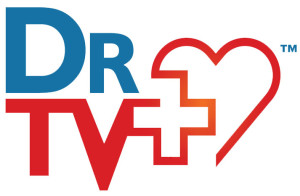A study led by researchers at McMaster University has found that that trans fats are associated with greater risk of death and coronary heart disease, but saturated fats are not associated with an increased risk of death, heart disease, stroke, or Type 2 diabetes.
The findings were published today by the British Medical Journal (BMJ). The lead author is Russell de Souza, an assistant professor in the Department of Clinical Epidemiology and Biostatistics with the Michael G. DeGroote School of Medicine.
“For years everyone has been advised to cut out fats. Trans fats have no health benefits and pose a significant risk for heart disease, but the case for saturated fat is less clear,” said de Souza.
“That said, we aren’t advocating an increase of the allowance for saturated fats in dietary guidelines, as we don’t see evidence that higher limits would be specifically beneficial to health.”
Guidelines currently recommend that saturated fats are limited to less than 10 per cent, and trans fats to less than one per cent of energy, to reduce risk of heart disease and stroke.
Saturated fats come mainly from animal products, such as butter, cows’ milk, meat, salmon and egg yolks, and some plant products such as chocolate and palm oils. Trans unsaturated fats (trans fats) are mainly produced industrially from plant oils (a process known as hydrogenation) for use in margarine, snack foods and packaged baked goods.
Contrary to prevailing dietary advice, a recent evidence review found no excess cardiovascular risk associated with intake of saturated fat. In contrast, research suggests that industrial trans fats may increase the risk of coronary heart disease.
To help clarify these controversies, de Souza and colleagues analysed the results of 50 observational studies assessing the association between saturated and/or trans fats and health outcomes in adults.
Study design and quality were taken into account to minimise bias, and the certainty of associations were assessed using a recognized scoring method developed at McMaster.
The team found no clear association between higher intake of saturated fats and death for any reason, coronary heart disease (CHD), cardiovascular disease (CVD), ischemic stroke or type 2 diabetes.
However, consumption of industrial trans fats was associated with a 34 per cent increase in death for any reason, a 28 per cent increased risk of CHD mortality, and a 21 per cent increase in the risk of CHD.
Inconsistencies in the studies analysed meant that the researchers could not confirm an association between trans fats and type 2 diabetes. And, they found no clear association between trans fats and ischemic stroke.
The researchers stress that their results are based on observational studies, so no definitive conclusions can be drawn about cause and effect. However, the authors write that their analysis “confirms the findings of five previous systematic reviews of saturated and trans fats and CHD.”
De Souza, a registered dietitian, added that dietary guidelines for saturated and trans fatty acids “must carefully consider the effect of replacement foods.
“If we tell people to eat less saturated or trans fats, we need to offer a better choice. Unfortunately, in our review we were not able to find as much evidence as we would have liked for a best replacement choice, but ours and other studies suggest replacing foods high in these fats, such as high-fat or processed meats and donuts, with vegetable oils, nuts, and whole grains.”



